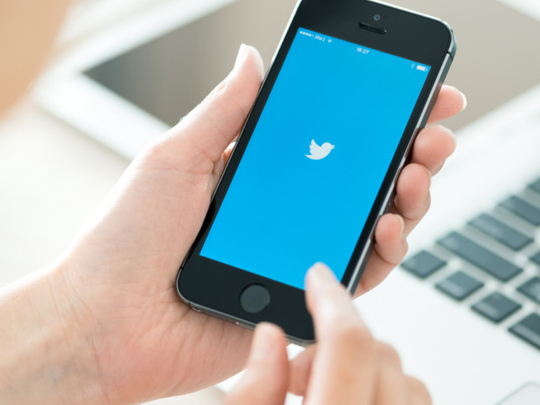
Several years ago I was on Facebook, looking for a thing — way outside my own networks, wandering around strangers’ pages like unfamiliar streets on the other side of my city. I was looking for the kind of person who would poison a dog at a dog show, which had apparently happened in Belgium. Two years later, a red setter would be murdered at Crufts , a death I could have prevented or — better — won a Pulitzer for writing about. But dog poisoners do not announce their intentions on Facebook, for a million reasons that never occurred to me. What I found instead was seemingly limitless rage: people who wanted the death penalty for a police dog handler whose dogs had baked in his car; people who wanted animal cruelty to be punished, an eye for an eye, a cigarette burn for a cigarette burn; people who wanted faithless dog-breeding men and others to jog on. I could feel the thrill in every tiny vituperation.
Anxiety about social media currently clusters around what it does to traditional media, to the news it promulgates and privileges, and thence to its impact on democracy. In a carefully detailed investigation, my colleague Paul Lewis described the fears at the heart of Silicon Valley. James Williams, ex-Google employee and vivid internal critic of tech, said: “We’ve habituated ourselves into a perpetual cognitive style of outrage by internalising the dynamics of the medium.” A business model that relies above all on getting and keeping attention has little time or use for neutrality, nuance or sophistication.
It’s a chilling analysis, but one that slightly underplays our own agency. We’re not passive consumers of sensationalised news, abetting fake or misleading agendas with our bovine, anaesthetised gaze. We prowl for disputes, amplify and disseminate and take sides, using them as carrier or proxy fights for other battles we consider more pressing.
Back in my own Facebook hood, everybody is livid as well; it’s just not dog related. It’s the private finance initiative, or the degradation of the biosphere, or someone on a train with a loud voice, or a perfume called Psychoanalysis, or a helicopter. From people you know, anger is endearing: vaudeville, passionate, playful, hyperbolic, bonding, amusing to watch. In people you don’t know, it is alienating: recognising neither the subtleties that temper it, nor the subtext that humanises it, all you can see is its denaturing effect. No wonder we stay in silos on social media — venture outside them and you’re ankle-deep in bile you can’t understand. It’s an imaginative excursion of the worst kind, as a silent hubbub you thought was all washing powder and Beyonce is actually full of violent fantasies and epic fury.
Yet we can’t insulate ourselves entirely, and communities of political opinion are particularly porous, with the disciples of one view conducting regular raids into the camps of their opposites. On Twitter, we are confronted with the anger of the other in its most extreme iteration. So my experience of Brexiters is all glorious Technicolour: the ones who think Boris Johnson is a genius, and are prepared to fight to the death for his honour; the ones who are outraged by the very existence of Germany and think the reasons for that should be obvious; the ones still boiling with rage over lost empires. Realistically, this cannot represent the majority of leavers, yet those are the circuits the leave case travels, on a public forum that was, paradoxically, conceived in order for us to understand each other better. The cliche is that Facebook is where you go to tell lies to your friends; Twitter is where you go to tell the truth to strangers. As it pans out, it becomes increasingly clear that Facebook is where you go to be outraged among people who are outraged by the same things; Twitter is where you take your outrage to the enemy.
As these informal skirmishes bisect with formal politics, MPs — human, inconveniently, like the rest of us — are generally convinced that, while there are bad eggs everywhere, their own Twitter critics are uniquely vengeful, uniquely threatening, savage in a way that their neighbouring MP, who only has fox-hunters or Terfs (Trans-Exclusionary Radical Feminists) to deal with, can never understand. The sheer extent of the abuse they receive is appalling — 840,000 abusive tweets, just in the run-up to the election — and will have its effect on politics over time, as the resilience MPs need is so total that the job starts to self-select purely on Teflon.
Yet another, subtler effect is that it’s already much easier to dismiss an opposing point of view if you encounter only its most toxic expression. Far from creating a more citizen-centric democracy, in which everybody can be seen and everybody heard, social media has made people ignorable. Leavers are racists; Momentum is a cult. Anyone outside the centre, even while we no longer have any consensus on what that centre is, has been tarnished by digital association.
We are right to be concerned about fake news, about the lie getting halfwayround the world before the truth has its pants on, about the failure of colossal organisations to halt the lie and help the truth with its pants. But the appetite for conflict, the exhilaration in anger, predates the internet by many centuries and is not, in itself, a negative: we create art and change by it, as much as division and discontent. The new utopia is not one in which nobody disagrees, or authorities step in to pre-empt our disagreements before they happen. It is one in which we can see the creativity in the rage of others that we see in our own; or, where that really won’t wash, understand splenetic excess as a spectacle rather than a truth.
— Guardian News & Media Ltd








